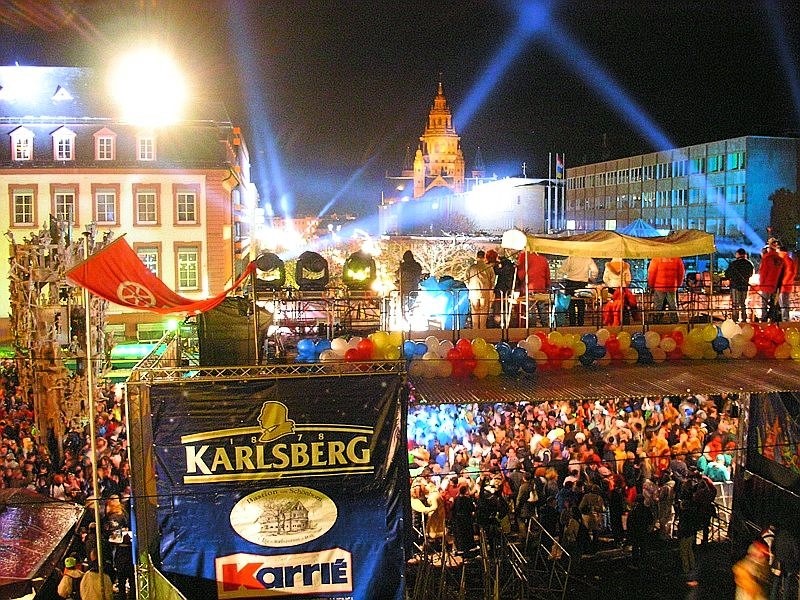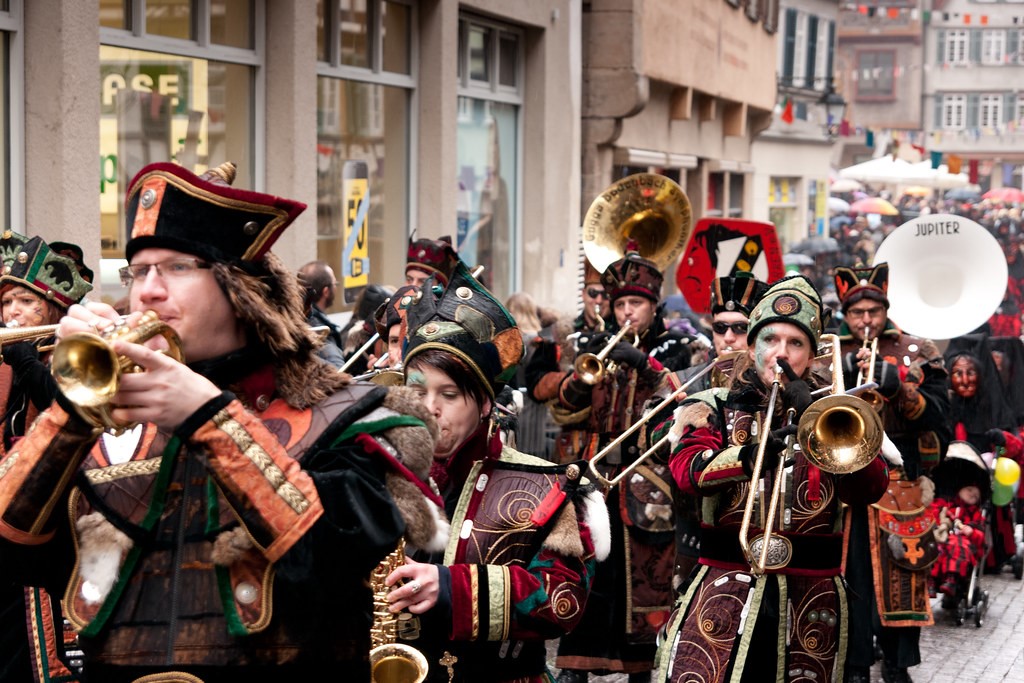Karneval, Fastnacht und Fasching
- März 18, 2021
- Posted by: admin
- Category: Culture

Ursprung und Gründe für das Feiern von Karneval
Wenn Sie in Deutschland waren und irgendwann über eine Hexe, einen Clown oder sogar eine ganze Gruppe seltsam gekleideter Einheimischer gestolpert sind, haben Sie mit großer Wahrscheinlichkeit eine der ältesten und berühmtesten Traditionen in Deutschland miterlebt, die zum Teil bis zu den alten Germanen zurückverfolgt werden kann - nämlich das jährliche Feiern von Karneval oder wie es lokal auch genannt wird Fastnacht oder Fasching.
Karneval feiern
Karneval also known as the Fifth Season of the Year annually starts on November 11 at exactly 11.11 am. It is said that the number 11 is of significance for Karneval since it is viewed as a närrische Zahl (crazy number) that represents the craziness during the Karneval celebration – a time when people dress up, eat, drink, and celebrate boisterously.
The sequence of events begins with the Weiberfastnacht or Altweiberfasching (Women’s Carnival) on a Donnerstag. On this day women dress up and cut ties worn by men as a symbol of women having taken over. In turn men who become “victims” of the women, they receive a kiss on the cheek as a present.
The Montag after Women’s Carnival is called Rosenmontag (Rose Montag) and 11.11 am on that day represents the summit of the Karneval season. Rosenmontag is best known for the parades that are being held all over the country where people fill the streets dressed up as everything you can and maybe cannot imagine from witches and magicians to Napoleon lookalikes. Napoleon costumes are common since the first organized Karneval parade was held in 1823 in Cologne after the defeat of Napoleon who prior had banned the Karneval celebrations during his reign in Europe.

The activities then continue on Dienstag known as Faschingsdienstag (Shrove Dienstag) which marks the last day of the Karneval season. In Germany, the parades and festivities on Faschingsdienstag are on a much smaller scale than in other parts of the world where the Dienstag marks the highlight of the carnival season and is known as Fat Dienstag or Mardi Gras.
However, despite being celebrated less than in other countries Faschingsdienstag has its own particular interesting aspects. Especially in the southern regions of Germany, the calmer Faschingsdienstag is reserved for Guggenmusik. Guggenmusik is a special music parade that was first documented in 1906 in Basel, Switzerland and was adopted by some regions in Germany beginning in the 1950s. Typical for this particular parade are the loud and wild noise the musicians make and the often frightening costumes and masks they wear.
In the Rhineland area, which is probably most famous for Karneval in Germany, on the evening of Faschingsdienstag traditionally people burn the Nubbel. Nubbel is a man-sized straw puppet which hangs above the entrance of many pubs and represents all the small sins and misdeeds people do during the during the Karneval season. With the burning of the Nubbel, all the mischief of the weeks leading to it is erased and forgotten. Thus, on the following day, the Aschermittwoch (Ash Mittwoch), the “crazy season” can end and the time of repentance and fasting towards Easter can begin.
Regionale Besonderheiten der Karnevalsfeierlichkeiten
Düsseldorf
The events in Düsseldorf differ from the neighboring city of Cologne, where the celebrations are known to be traditional and romantic. The Karneval in Düsseldorf is well known for its more politically critical parades with bold statements and witty remarks held in Old Town Düsseldorf which is also known as the longest bar mile in the world.
Mainz
While many other regions focus on party, food and drinking, in Mainz the Karneval puts the emphasis on political humor, satire and literature.
Aachen
In Aachen, people historically people focus on making fun of men in uniform and the celebrations boast the motto “Spaß an der Freud” loosely translated into English as “Enjoy the Joy”.
Münster
Even though Münster is not famous for being a party destination, during Karneval this city does not want to stay behind. In particular, the Rosenmontag is celebrated with a number of decorated vehicles and thousands of “crazy people” that color the city center.
Unterschiedliche Terminologie und Ausrufe
There are not only regional differences in the way Karneval is celebrated but each region also has its own exclamations and terminology. While in Cologne people will greet each other by screaming “Kölle Alaaf!”, a few kilometers further in Düsseldorf “Helau!” will be heard all over the city. Again, in other regions like in Bavaria and Northern Germany people cry out “Ahoi!” or “Hajo” like in Berlin and Heidelberg. While in the Rhineland region Karneval participants are named Jecken, in many other regions they are referred to as Narren.
Karneval inmitten der Pandemie
During the COVID-19 pandemic the fantastic costumes, exciting parades and entertaining events that are part of the Karneval celebrations cannot be witnessed as usual. However, that does not mean that there are no Karneval celebrations at all. Karneval fans are finding creative ways to keep the tradition alive despite the limitations caused by the pandemic. In Cologne for example the 2021 parade on Rosenmontag was substituted by a televised miniature parade featuring puppets wearing all kinds of fun costumes.
